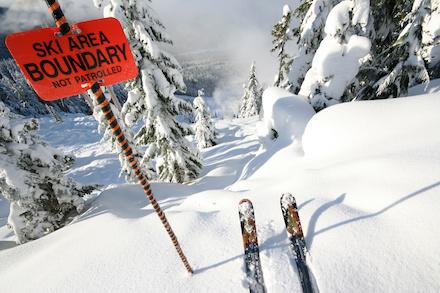What you need to know before hitting the slopes this season
The arrival of cold weather months in Colorado represents the start of ski and snowboard season. While the slopes are a main attraction, offering endless outdoor engagement for winter sports enthusiasts of all ages, they aren’t without their risks. Ski accidents are an unfortunate hazard of this favorite winter pastime, which is why it’s critical that you be armed with important safety information.
Colorado’s Ski Safety Act, originally enacted in 1979, exists to establish reasonable safety standards related to s kiing operations, areas, and participants. Though there are inherent risks with these winter sports, such as ski accidents, this act seeks to mitigate the dangers by providing ski area operators and skiers with defined rights, liabilities, and legal responsibilities.
kiing operations, areas, and participants. Though there are inherent risks with these winter sports, such as ski accidents, this act seeks to mitigate the dangers by providing ski area operators and skiers with defined rights, liabilities, and legal responsibilities.
Under this law, ski areas are responsible for marking trails and certain structures, outlining boundaries, providing chairlift instructions, and posting various warnings as well as notices for mountain trail closures. Failure to comply with these requirements leaves ski areas vulnerable to lawsuits resulting from skiing accidents or related injuries.
It is important to note that skiers also have responsibilities under this law, including knowing individual limitations and skiing within one’s own abilities (and maintaining control), heeding warnings and obeying closures, and not skiing/snowboarding or riding chairlifts while impaired. By calling attention to the inherent risks of skiing and related sports and establishing expectations for skiers themselves, this act helps ensure ski areas have adequate access to insurance and can maintain manageable costs for participants.
More than 25 states have created legislation similar to the Ski Safety Act, and across these states, including Colorado, additional safety programs and measures are often adopted by businesses and organizations within the skiing industry.
Before you hit the slopes this season, take time to familiarize yourself with the rights, liabilities, and responsibilities associated with the Colorado Ski Safety Act. And when traveling to specific venues or skiing destinations outside of Colorado, be sure you know what protections are in place and what your role is in maintaining the rules. Being well informed will serve as a safeguard in the unfortunate instance that you or someone you know is injured in a skiing accident.
In the event of a skiing accident, McDivitt Law Firm has specialized lawyers who can help. Call 877-846-4878 today or click here for a free initial consultation. Your information will remain strictly confidential.


